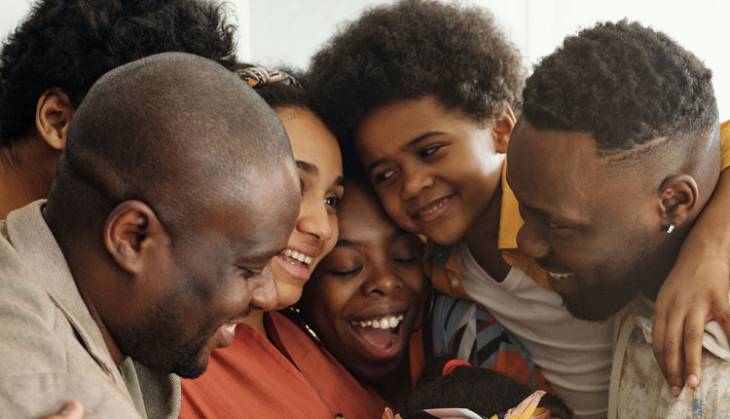When friends stick closer than family

Blood is thicker than water, the saying goes. However, the power of friendship gets stronger with age and may even be more important than family relationships, making people confide in their friends than they would a relative, according to study
You can choose your friends, but you can’t choose your family. Perhaps this is why a new study suggests that friends are very important, especially as we age.
This is according to a study by a Michigan State University Scholar, William Chopik.
The study found that friendships become increasingly important to one’s happiness and health across the lifespan.
Not only that, but in older adults, friendships are actually a stronger predictor of health and happiness than relationships with family members.
It further showed that friendships were influential because friends were the source of support that participants needed.
Chopik said that maybe it is because of the optional nature of relationships – that over time, we keep the friends we like and make us feel good and discard the rest.
But overall, the study revealed that family relationships are often enjoyable too, but involve serious, negative and monotonous interactions.
This actually begs the question, why are people comfortable confiding with friends more than family?
“Real friends will help you deal with your problem without judging,” says Agnes Wangui, a teacher.
She shares how most of the time family have certain morals and values they expect members to abide by, and therefore, it may be uncomfortable to confide in them anything that goes against these unspoken standards.
Peninah Wanda, an education expert concurs adding the reason you might consider talking to your friends is because some could be your peers who are also undergoing similar issues and situations.
“Over the years, I admit that confiding in my friends has proved more helpful than in family.
When it comes to matters of dealing with stress, money and relationships the reason I would not approach an aunt or cousin is simple, I tend to think I will be judged,” she says.
“Everyone wants a safe space to express their vulnerable selves. I see this many times with students who may share their challenges with a teacher because they feel she/he will not judge their actions, decisions and may even at times, come to their rescue,” she explains.
To her, the relationship that exists between families is obligatory. You are often pushed to support even if you are emotionally detached from them just because they are relatives.
On the other hand, relationships that exist between friends are elective and while we look at the family from an angle of obligation, with friends there is discretion.
You have control over who you choose to surround yourself with friend-wise, but that’s not the case when it comes to family.
“It is this difference that allows us to attach our emotional selves to friends, without fear of bias, confrontation or judgment.
We turn to friends for help because they can relate and we do not need to give any reason,” she says.
When it comes to talking to our families, it’s only natural we have a filter. But with your friends, no filter is necessary.
You can spill all your dirty secrets and go as in depth as you like without any side-way glances or snide comments.
That definitely beats telling your aunt about the new boy you are seeing, whom you met at a club.
Another reason is because we just do not want to burden our families. “We all come from different families and this means, different backgrounds, cultures, and systems.
If I come from a family where there is financial strain, even if I have a financial need, it is so obvious that I may not want to burden my family with worry. The case is the same for if you come from a broken home,” she explains.
“I am not saying that confiding in family cannot work; Rather, in my opinion, the bonds we form with friends have no obligations, which mean they can be severed at any time, while family is there to stay whether they are vile or supportive. You do the math.
Opening up
On his part, Elmard Reagan, a psychologist says that confiding or not confiding with one’s family, may stem from how one was brought up.
“If you come from a family where you were not allowed to talk or express your views, then it becomes difficult opening up to family members,” he says.
While some families are open, loving, and warm, others can be cold, abusive, and neglectful.
Family relationships may also be associated with more complex issues, hierarchical disparities, and circumstances where one may feel indebted to another, while healthy friendships have an even power structure.
So, which Is better: Family or friends? Experts agree there is no “better” when it comes to a familial relationship or friendship. Relationships are all different and will vary based on unique circumstances.
He says relying more on a family member or friend will depend on your unique situation.
Some individuals have an unhealthy family situation and prefer to rely on friends.
Others have a more difficult time making and/or maintaining friendships and may rely more on family members and yet others may rely on family members for certain matters and friends for others.












